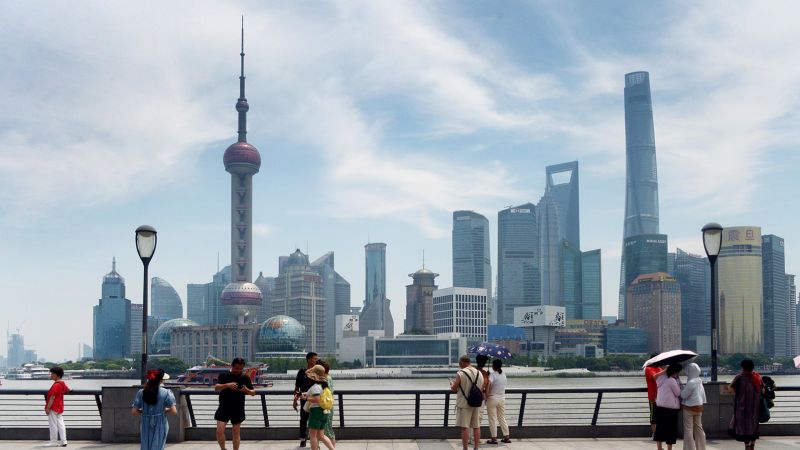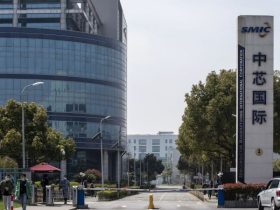Editor’s Note: Sign up for CNN’s Meanwhile in China newsletter which explores what you need to know about the country’s rise and how it impacts the world.
China is allowing foreigners in Shanghai and Beijing to move their money freely into and out of the country, in a significant move toward relaxing its strict capital controls as it tries to woo overseas investors.
The news was announced just weeks after official data showed foreign direct investment (FDI) in the country had hit a record quarterly low amid a slump in business confidence.
Foreign investors — either individuals or companies — at the Shanghai pilot free trade zone, where tens of thousands of firms are located, can remit their funds without any restriction or delay, according to a statement from the city government posted Thursday.
The funds need be “real and [legally] compliant” and related to their investments in China, it said. The rules, which do not apply to mainland Chinese nationals, took effect on September 1.
Shanghai’s free trade zone is one of China’s largest and is slightly bigger than the city of Seattle.
It’s home to Tesla’s Gigafactory as well as the country headquarters of hundreds of multinationals, including HP, AstraZeneca and BlackRock.
On the same day, the Beijing city government proposed similar regulations, pledging to facilitate cross-border fund flows for foreign businesses. It’s seeking public feedback on the proposal.
The policies are aimed at attracting foreign investment to build an open economy, the government said.
China maintains a “closed” capital account, which means companies and individuals can’t move money in or out of the country except in accordance with strict rules.
The Chinese currency has weakened more than 6% against the US dollar since the start of April, as economic growth lost momentum and its central bank eased monetary policy more aggressively than its Western peers. A weak currency could further reduce a country’s investment appeal and accelerate the outflow of capital.
Thursday’s measures are the latest effort by Chinese leader Xi Jinping’s government to woo foreign capital and stabilize ties with the West.
A gauge of FDI in China plunged in the second quarter, hitting its lowest level since 1998, when records began, according to data published by the State Administration of Foreign Exchange last month.
Separate statistics published by the commerce ministry Sunday showed that its measure of FDI dropped more than 5% during the first eight months of 2023, compared with a year earlier.
Business confidence among American firms in China appears to have plummeted.
On Tuesday, a survey by the American Chamber of Commerce in Shanghai showed that only 52% of respondents were optimistic about their five-year business outlook, the lowest level since the survey began in 1999. That compares with 55% in 2022 and 78% in 2021.
Foreign companies and investors have grown wary of rising risks in the world’s second largest economy, including a slowdown marked by weak domestic demand and a housing crisis, Beijing’s desire to prioritize national security over economic growth and deteriorating relations between China and many Western countries.
China has made a series of moves recently to stabilize foreign trade and investment, including cutting a tax on stock trading for the first time since 2008.
On Monday, the People’s Bank of China met with a number of top Western companies, including JP Morgan, Tesla and HSBC, pledging to further open up the financial industry and “optimize” the operating environment for overseas companies.
The latest relaxation in capital controls is part of a policy package announced by Beijing and Shanghai, the country’s two biggest cities, to facilitate foreign trade and investment.
Expatriates working at foreign enterprises in the Shanghai free trade zone — including employees from Hong Kong, Macao and Taiwan — can transfer their income abroad without restriction, according to the rules.
Beijing’s policy contains similar measures. It also promised to make it easier for foreign companies to transfer data overseas with “fast-track” channels and encouraged them to invest in the city’s high-end manufacturing, services and green industries.
Read the full article here













Leave a Reply